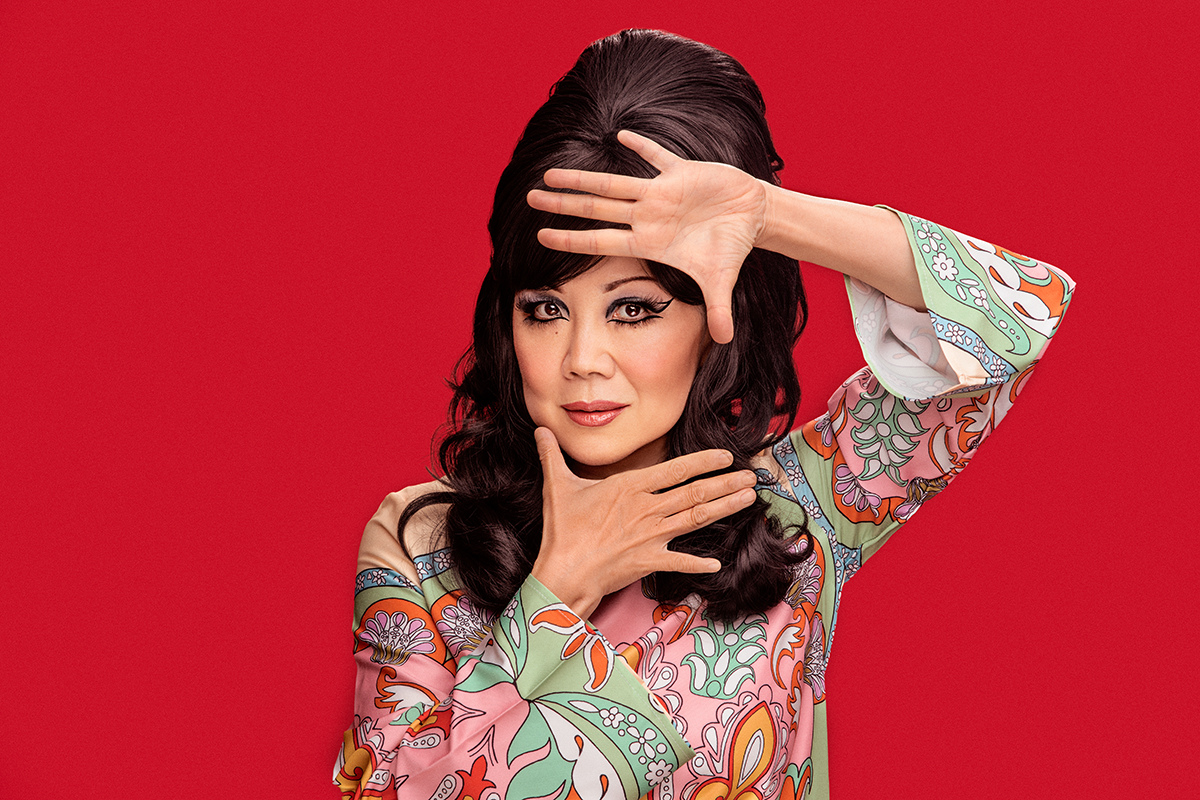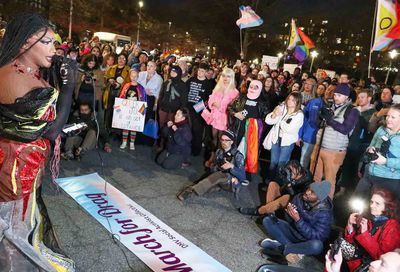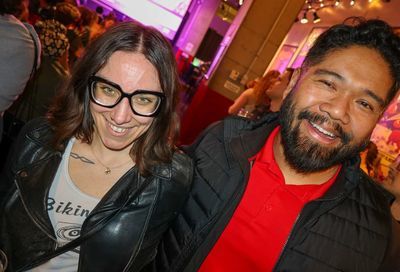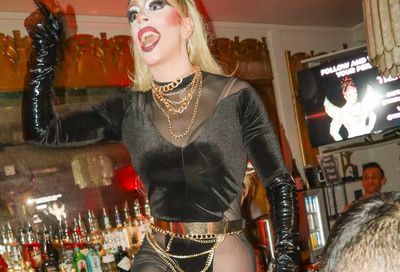Robert Joy to the World: “We’re Facing a Test in This Country”
For highly recognizable, veteran gay actor Robert Joy, starring in Max's "Julia" has been a souffle come true.

“I’ve kissed Madonna and, yes, she tastes like bubblegum,” says Robert Joy, who, early in his acting career, starred opposite the then-fledgling pop star in 1985’s Desperately Seeking Susan.
“I’ll never forget that first scene we did down in Battery Park,” he recalls. “We have that long kiss at the beginning. And it was brilliant of her — it wasn’t in the script — that she took the bubblegum out of her mouth. What was admirable about Madonna is that she hadn’t had a lot of experience in front of the camera then, but she made the brilliant choice of bringing herself to the role. She was so relaxed and confident and made it really easy for everyone to work around her.”
Regrettably, Joy lost contact with the superstar after filming ended. “She had other fish to fry,” he says with a smile. “I didn’t become part of her social circle.”
Joy, who in the early 1980s was featured in Louis Malle’s wistful and profound Atlantic City and Milos Forman’s sprawling Ragtime, went on to an extraordinary decades-spanning career that included a nine-season stint on television’s CSI:NY as Dr. Sid Hammerback. He’s currently featured in the wonderful Max series, Julia, which chronicles Julia Child’s origins as “The French Chef” at WGBH in Boston.
Starring British actress Sarah Lancashire in a mesmerizing turn that uncannily evokes the late, legendary cookbook author and television host, David Hyde Pierce as her husband, Paul, and Bebe Neuwirth as her effervescent best friend, Avis, the series, which just wrapped a brilliant second season, is a delight to work on, says Joy.
Joy plays Hunter Fox, the anxiety-prone visionary running the station. Fox sees promise in Julia’s ability to transform public TV’s format from dull and educational into something vibrant and educational, fully utilizing the power of the medium’s personal — and personable — reach.
“The first season we get to see what WGBH is like in a normal time, before The French Chef comes along — and it’s kind of a sleepy public television station,” says Joy. “And then in the second season, there’s suddenly the Sword of Damocles over our heads. Everything has to measure up now to The French Chef. So it becomes a crucible of workplace anxiety, and that provides us in the series with opportunities for comedy, and for working through real workplace toxicity and difficulties — the challenges that everybody faces in the workplace.”
He adds that “Julia Child got into public television as an educator, but it just so happens she was a very entertaining educator. [The French Chef] is still an educational program, but it broke the mold. It didn’t have to be dry. It didn’t have to be studious or academic. It could be fun to learn.”
Surprisingly, while most of the show’s characters are based on real-life counterparts — such as French Chef director Russ Morash and Julia’s book editor Judith Jones — Hunter Fox never existed. “He’s an amalgamation of other real people,” says Joy. “Or a total invention, maybe.”
Joy is in noticeable awe of series star Lancashire, who is made to tower above everyone else, the way Julia Child did in real life.
“I don’t know if I’m allowed to say this, but sometimes Sarah is wearing the shoes that make her look taller,” Joy confides. “And sometimes she doesn’t have to wear them, depending on the camera angle. But man, when she’s wearing those shoes, you do feel that you’re with Julia Child.”

Joy is similarly in awe of the food on the set.
“Not one morsel of the food that you see on that show is a prop,” he says. “Not one morsel. You get to eat it. And you’ve got to be careful, because if you establish in a wide shot that you’re gobbling up the wonderful petit fours or the wonderful chocolate mousse, you have to repeat that again in the closeups. The first three or four helpings are great, but then you start to feel really full….”
A native of Canada, Joy has long been an out gay actor in the industry (he’s been in a relationship with Henry Krieger, the composer of Dreamgirls and Side Show, since 1995).
“When I started — forget about the acting part at all — when I first was in a gay relationship and renting an apartment, we had to pretend to be friends,” the 72-year-old recalls of his early days. “We had bunk beds. We would muss up the second bed. We had a word for it. I can’t remember what it was. But it was like the ‘pretend roommate bed’ in case the super came in and had to make a repair, and saw that the other bed was not mussed up. There was a sense of hiding.
“And over the course of my life, let alone my career, that world has so totally gone into the rear-view mirror — at least in this country and on this continent, let’s say. And that’s hugely gratifying.”
As so often these days, the conversation turns political, what with the threats facing the LGBTQ community in America, with the banning of drag shows and relentless legislative attacks on the transgender community.
“We’re facing a test in this country with the upcoming election,” says Joy. “There are some very loud voices that are looking to turn back the culture. They’re basically looking to say, ‘Why can’t we have it the way it was in the ’50s where there weren’t so many openly gay people? When we didn’t have to worry about who uses the restroom and what pronoun to use?’ And those loud voices, if they vote in greater numbers than the people who are looking forward, we’re in big trouble.
“But I’m an optimist,” he concludes. “I think people are going to want to move forward. They’re not going to want to go back…. This is why I think Biden is a pretty good candidate, because he’s moderate. And the extremes now are so toxic. I just think if we’re talking about compassion and open minds and open hearts, the candidate that’s out there talking about that is Joe Biden. Sure, I wish he was 20 years younger, but he’s not.”
Both seasons of Julia are now streaming in full on Max. Visit www.max.com.
Support Metro Weekly’s Journalism
These are challenging times for news organizations. And yet it’s crucial we stay active and provide vital resources and information to both our local readers and the world. So won’t you please take a moment and consider supporting Metro Weekly with a membership? For as little as $5 a month, you can help ensure Metro Weekly magazine and MetroWeekly.com remain free, viable resources as we provide the best, most diverse, culturally-resonant LGBTQ coverage in both the D.C. region and around the world. Memberships come with exclusive perks and discounts, your own personal digital delivery of each week’s magazine (and an archive), access to our Member's Lounge when it launches this fall, and exclusive members-only items like Metro Weekly Membership Mugs and Tote Bags! Check out all our membership levels here and please join us today!
























You must be logged in to post a comment.